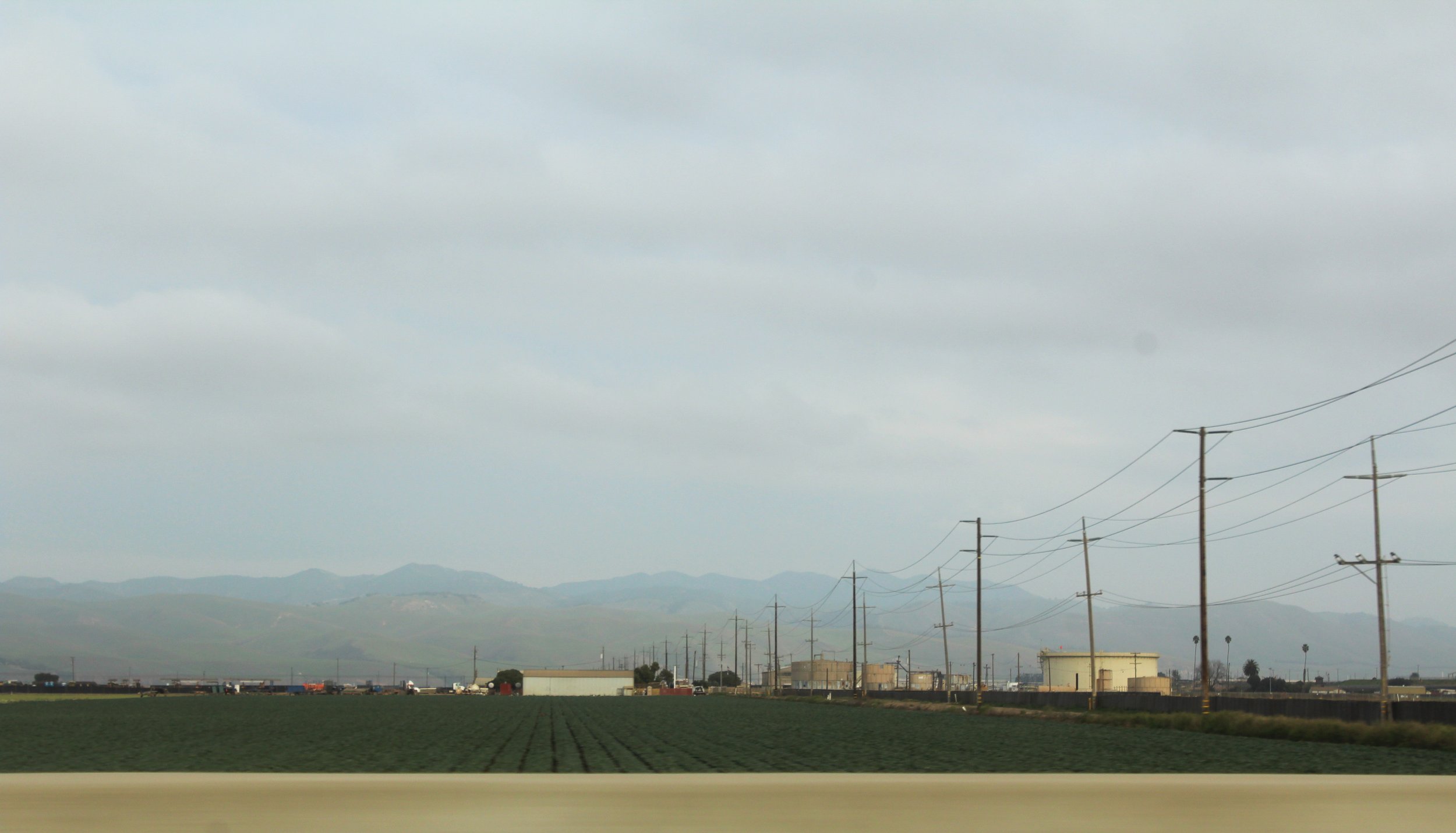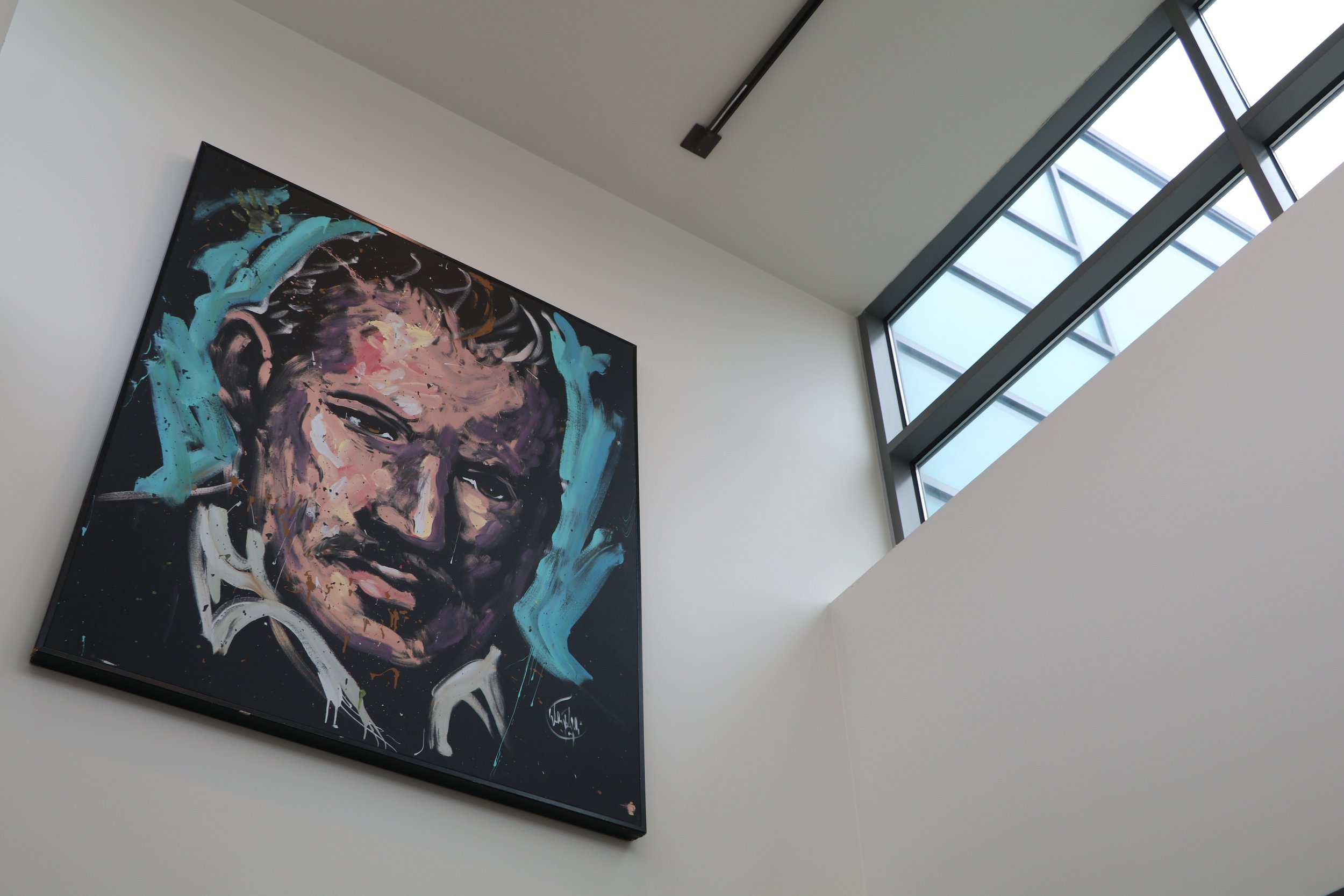The California Road Trip Issue
Rolling hills & windswept plains
An exploration of time and place through John Steinbeck
An inevitability when one is making their way through the vast California highway: a coalescence of barren farmland and seemingly abandoned ranch houses begin to mar the invariability of an inland dreamscape.
There isn’t a soul in sight, but the milling about of cows and horses allows one to ponder on days past and yonder. It would seem that we’ve traveled back in time, the view unchanged by the moving decades.
During our trip along the coast, we spend a night and a morning in Salinas, California – a locale as memorable as its name, dry and still despite the heavy presence of cars and milling machinery.
Like many small American towns, there isn’t much to look at. Gas stations, lonely parking lots, and empty shopping centers all contribute to an industrial aesthetic that pales in comparison to the pomp and splendor of cities like Santa Cruz and Santa Barbara. What do people do in this less-than-eclectic place, I wonder, when every day looks the same and every street corner offers little by way of modern entertainment.
But 120 years ago on an unassuming street in the middle of this sightless town, one of America’s greats was born in a small and bespeckled house to a just-as-small family. John Steinbeck — author, traveler, and later, Nobel Prize winner — had dedicated many of his most iconic works to Salinas and towns and cities much like it.
We spend an hour or two of our trip visiting the National Steinbeck Center, a museum and exhibit recounting the life and journey of this indubiously memorable individual. Making my way through countless displays on Steinbeck’s novels and upbringing, I am struck by a profound sense of wonderment. The entirety of his remarkable life is condensed into small exhibits that are characterized by forgotten quotes and dusty corners; old books crowd the walls, and the sounds of documentaries disrupt its quietude. I am entranced by the haunting spirit of this building, the haunting spirit of this man.
“I think I would like to write the story of this whole valley, of all the little towns and all the farms and the ranches in the wilder hills. I can see how I would like to do it so that it would be the valley of the world,” wrote Steinbeck.
Gazing out a foggy window with the Top 40 playing in the background, I get lost in the confines of my mind. Daydreaming through hours of travel — it’s an experience that I imagine predates written history; it heralds the timelessness of books like Steinbeck’s.
I’m invited to wonder about the moments before he put his pen on paper. Did he gaze upon the windswept plains that exist right beyond Salinas’ borders, inspired by the fragility of sights so abundant? In his transience, and in the transience of his novels, did he imagine a world of similarly rolling fields, dry wheat, and lush grass covering the thousands of miles that encompass this great big earth?
I like to think so.
Some of Steinbeck’s most popular works — Of Mice and Men, The Grapes of Wrath, East of Eden — touch on the persistent and transitory nature of the human condition. As the air-conditioned car I doze in continues to accrue miles along the highway, I trace the parallels between our California road trip and the journeys that Steinbeck narrates in his leather bound novels.
In East of Eden, Steinbeck’s self-proclaimed magnum opus, the author embarks on his most difficult work yet. A love letter to his young sons, the book goes back in time and offers vivid descriptions of Salinas Valley as it was in the days of his grandfather. The picture he artfully paints misses some of the modern influences that could be found in Salinas during our brief stay there; still, its spirit is unmistakable.
What would Steinbeck have thought of our decision to drive along the brambled coasts of California, conversation filling the minute silences only interrupted by the passing of the road beneath our car?
As the center so clearly points out, Steinbeck was an adventurer at heart, a journeyer both on paper and in practice. His works are filled with men and women who, although often lost in the toils of survival, find meaning in the metaphorical and metaphysical miles beneath their feet.
I hope he would have enjoyed reading our stories of discovery, of searching, of wonderment, and of purpose.
I don’t know when I’ll next travel to Salinas. Both my past and my present are defined by major metropolises, and the silence of the town admittedly perturbed me. But it also served as a peek into a past strangely familiar, and as I look back on the hours of driving and window-gazing, I can imagine Steinbeck in the driver’s seat beside me, nodding along to Taylor Swift with the cows and the field starkly behind us.
“And all plans, safeguards, policing, and coercion are fruitless. We find after years of struggle that we do not take a trip; a trip takes us.”
Words: Samantha Lim
Photos: Shalyla Madha, Niko Frost






